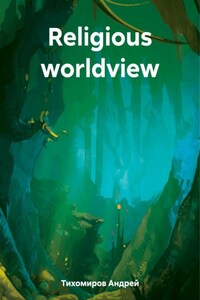According to religious ideas that arose in ancient times, in connection with the development of abstract thinking, God is a powerful, supernatural being, the highest non-material force that created the world, gave it a certain structure and governs the world, determining the fate of individuals and all mankind.
However, scientific atheism proves that religious ideas arose even among primitive people as a result of their impotence before the phenomena of nature. The external forces of nature that dominated primitive people were reflected in their minds in a fantastic form, as supernatural beings that control the phenomena of nature and bring people either good and benefit, or disasters and harm (constant dualism). With the emergence of class society and the exploitation of man by man, religion began to reflect the forces of social oppression; the gods "now also acquire social attributes and become representatives of historical forces" (Engels F., Anti-Dühring, 1950, p. 299). Thus, God is not an omnipotent non-material being, as the preachers of religion claim, but “a complex of ideas generated by the stupid oppression of man and external nature and class oppression – ideas that reinforce this oppression, lull the class struggle” (Lenin V.I., Works, 3rd edition, Moscow, volume 17, p. 85).
The original form of faith in God was animism – faith in spirits, primarily the spirits of deceased ancestors, as well as in general the spiritualization of the forces and phenomena of nature.
Animism (from the Latin word anima – soul, spirit) – belief in souls and spirits, in fantastic, supernatural beings, as if acting in nature, controlling all objects and phenomena of the world. A distinction is made between “soul” and “spirit”: the soul is presented to the animistic imagination as being associated with some separate body or phenomenon, while the spirit is attributed an independent existence, not connected with individual objects, although the spirit, according to these ideas, can temporarily inhabit some either a body or a thing. The phenomena of sleep, fainting, epilepsy and other physiological manifestations seemed to primitive people the result of the activity of an invisible double existing inside a person – the soul, which supposedly can temporarily leave the body. The images appearing in dreams were considered as souls, epileptics and the mentally ill – as possessed by spirits. Death was the final departure of the soul from the body. Common among all peoples, as a relic of the primitive communal system, the rites of honoring dead relatives were associated with the idea of the continuation of the existence of souls after death and their influence on the fate of the living. Animism also underlies the belief in reincarnation, that is, reincarnation, the rebirth of the souls of the dead in newly born people.










